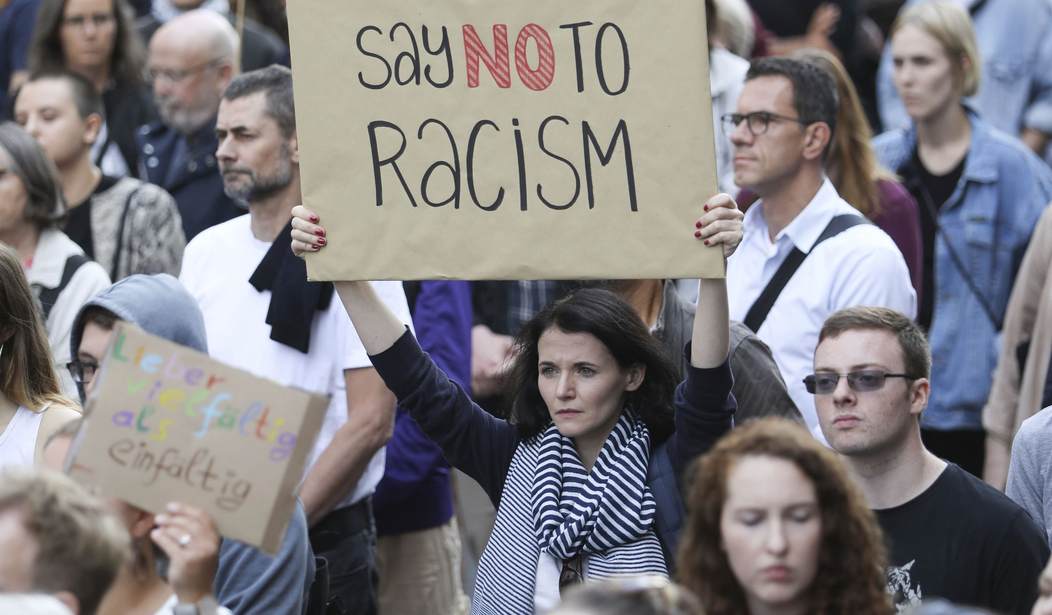We’re living in turbulent times. Crime is terrorizing the citizenry; riots and looting have sacked cities; businesses have been forced under by government mandates; in many areas of the country, residents are masking like surgeons despite having taken a vaccine and multiple boosters so they wouldn’t have to. There’s a lot to figure out.
And at Washington University’s Brown School, they’re attempting to major in the majors.
Amid all our issues, the St. Louis college recently hosted a discussion to tackle the mystery on everyone’s minds.
It’s a burning question: Is professionalism a racist construct?
In honor of Black History Month, that very query served as title for the virtual event.
Per the February 1st video’s YouTube description, marginalization has been afoot:
The term “professionalism” has at times been used to silence and marginalize people of color, when attributes of appearance, language, or interactions that have nothing to do with job knowledge or constructive collegial relationships are labeled as “unprofessional.”
As noted by Campus Reform, the deep dive eyed traits of white supremacy culture:
- Perfectionism
- A Sense of Urgency
- Defensiveness
- Worship of the Written Word
- Quantity Over Quality
Assistant Dean for Field Education Jewel Stafford waxed on inadequacy:
“Even though we’re working really hard, there’s a narrative that we’re not enough, that somehow who we are, what we do, it’s just not enough.”
It’s a nasty narrative. Do the pushers of such a postulation also dabble in other areas of discrimination?
The education professionals got philosophical.
From CR:
[Assistant Dean of the Office of Community Partnerships Cynthia Williams] said that depending on the marginalized group being recognized at the time, they might have changed the question.
For example, she noted that if the talk was given on Disability Awareness Day, the talk may have been called “Is it an Ableist Construct?” If it was given during Women’s History Month, it may have been called “Is it a Misogynistic or Sexist Construct?”
If the talk was given during Gay Pride Month, they might have called it “Is it a Heterosexist (Homophobic) Construct?” And if the talk was given during National Native American Heritage Month, it may have been called “Professionalism: Confronting Anti-Indigenous and Systemic Racism.”
Washington U’s understanding of America isn’t exactly an outlier.
In 2020, the Smithsonian’s National Museum of African American History and Culture called out components of Caucasianness:
- Rugged Individualism
- The Nuclear Family
- Objective Thinking
- Believing Hard Work is the Key to Success
- Christianity is the Norm
- Respecting Authority
- Planning for Future
- Delayed Gratification
- Action Orientation
- Decision-Making
- Being Polite
Also white: hard work and rational thought.
At Colorado University last year, they bottom-lined it:
Colorado University Hosts Teacher Training to Fight the 'White Supremacy' of 'Productivity' https://t.co/8WSl5m8bWW
— RedState (@RedState) September 5, 2021
Doubtlessly, the above news came as a stunning surprise to many, many, many nonwhite Americans.
Maybe in time, America will free itself from parasitic productivity:
Mental Health Journal's Article on 'Parasitic Whiteness' Laments There's 'Not Yet a Permanent Cure'
https://t.co/NSPA6ckyA5— RedState (@RedState) June 11, 2021
Meanwhile, the Brown School is trying to help.
The Zoom conference’s description further pointed out that “so-called professionalism is coded language, a construct that upholds institutional racist policies and excluding practices.”
It promised to “explore dismantling white supremacy and privilege in varied contexts while upholding social justice and advancing effective workplaces in which all contributors can bring their full selves to the job site.”
Compliments of an onscreen slide, the group began their meeting righteously:
I acknowledge that the Brown School at Washington University in St. Louis, Missouri, is within the ancestral homelands of the Osage Nation, Missouria, Illini Confederacy, and many other tribes that have resided, occupied, and called this region home. We honor them and pay respects to elders past and present.
How do they honor them? By saying they honor them.
And how did American Indians lose their land to institutions who appear to acknowledge they took it but refuse to give it back? Perhaps, in the view of Washington University, the tribes weren’t palefully professional enough.
-ALEX
See more content from me:
What the Howl? Seattle Man Transitioned to a Woman and Also a Wolf
Top Research University Offers Gentle Care to Students Ravaged by Free Speech
Find all my RedState work here.
Thank you for reading! Please sound off in the Comments section below.












Join the conversation as a VIP Member